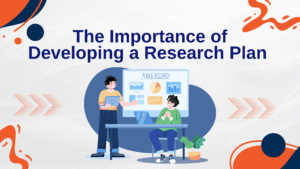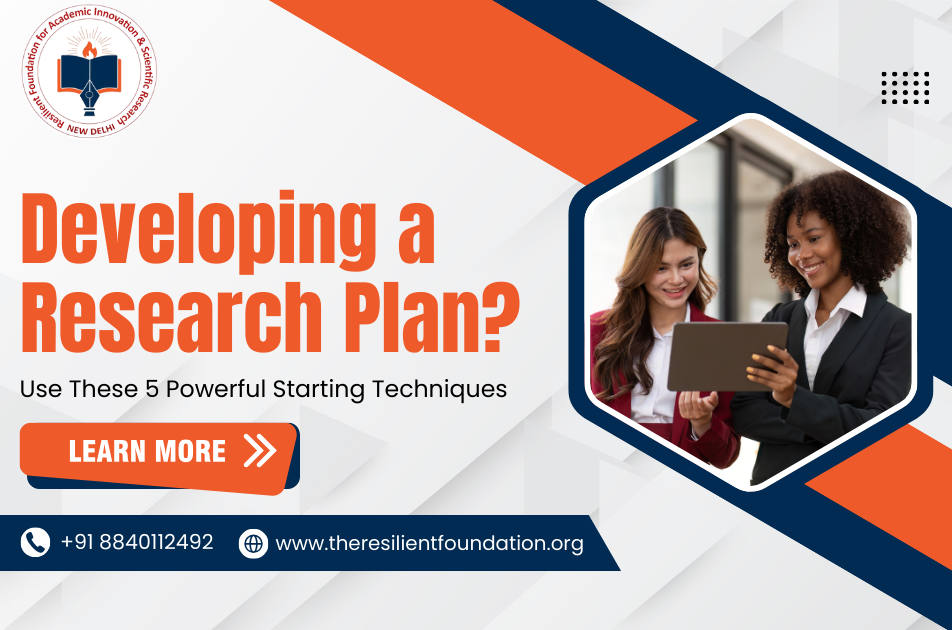When you start developing a research plan, you set the foundation for your project. A clear plan gives direction, keeps you focused, and ensures that your goals are realistic. Without it, research can feel scattered and overwhelming. However, when you have a step-by-step guide, you save time and improve results. This makes your work more accurate and professional. In addition, a good plan helps you manage resources and track progress. So, before you dive in, it’s worth knowing the best ways to start strong.
The Importance of Developing a Research Plan
Creating a research plan is not just a formality—it’s a smart way to avoid confusion later. Here’s why it’s important, especially when aiming for quality research data analysis:

- Clarity of Goals: You know exactly what you are trying to find out.
- Better Time Management: You can divide your work into smaller, achievable tasks.
- Resource Allocation: You can prepare the tools, budget, and team you need in advance.
- Improved Accuracy: You avoid random guesses and keep the study on track.
- Stress Reduction: You feel more confident because you know what’s coming next.
When you invest time in planning first, you make your research more professional and efficient. Also, this structure saves you from repeating work or missing key points.
The 5 Powerful Techniques to Develop Your Research Plan
If you want your plan to work well, use these research planning techniques from the very beginning:

- Define Your Purpose Clearly: Write down exactly what problem you are trying to solve.
- Know Your Audience: Understand who will read or use your findings.
- Break It Into Stages: Divide the research into smaller, manageable sections.
- Choose the Right Methods: Decide whether you will use surveys, experiments, interviews, or other tools.
- Set a Realistic Timeline: Allocate enough time for each phase without rushing.
By applying these methods, you start with focus and reduce the chances of mistakes. Moreover, these steps give you a strong foundation to build on.
Common Mistakes You Must Avoid
Even experienced researchers make errors when developing a research plan. Here are some pitfalls to stay away from:
- Skipping the Background Study: Without proper research, you may miss important details.
- Unclear Objectives: If your goals are vague, your work will lack direction.
- Overlooking Budget and Resources: Ignoring costs can cause delays or incomplete work.
- Poor Time Planning: Rushing at the end reduces quality.
- Ignoring Feedback: Not listening to advice can lead to weak results.
Avoiding these mistakes will save you both time and energy. Also, it will help you produce research that stands up to scrutiny.
Myths vs. Facts in Research Planning
There are many misconceptions about research workshop preparation and planning. Let’s clear up two of them:
- Myth: “Planning is a waste of time. Just start collecting data.”
Fact: A plan ensures your data is relevant and saves you from redoing work. - Myth: “Only experts need detailed research plans.”
Fact: Whether you’re a student or a professional, planning improves your results.
By knowing these truths, you can approach your project with confidence and avoid the frustration caused by false beliefs.
Tips to Make Your Plan Effective
Developing a research plan that works well, follow these steps. These will also help in better analytical research:
- Start with a Template: Use a proven structure to avoid missing important parts.
- Keep It Flexible: Be ready to adjust if you find better data or methods.
- Use Clear Language: Write simply so anyone can understand your plan.
- Seek Expert Guidance: A mentor or guide can point out gaps in your work.
- Test Your Plan: Do a small trial before going all-in.
At Resilient Foundation, we help individuals and teams improve their research skills and developing a research plan through structured guidance and training. If you want to create a plan that is professional, practical, and impactful, our programs are designed to guide you step by step. We focus on real-world applications so that your research leads to meaningful results.

